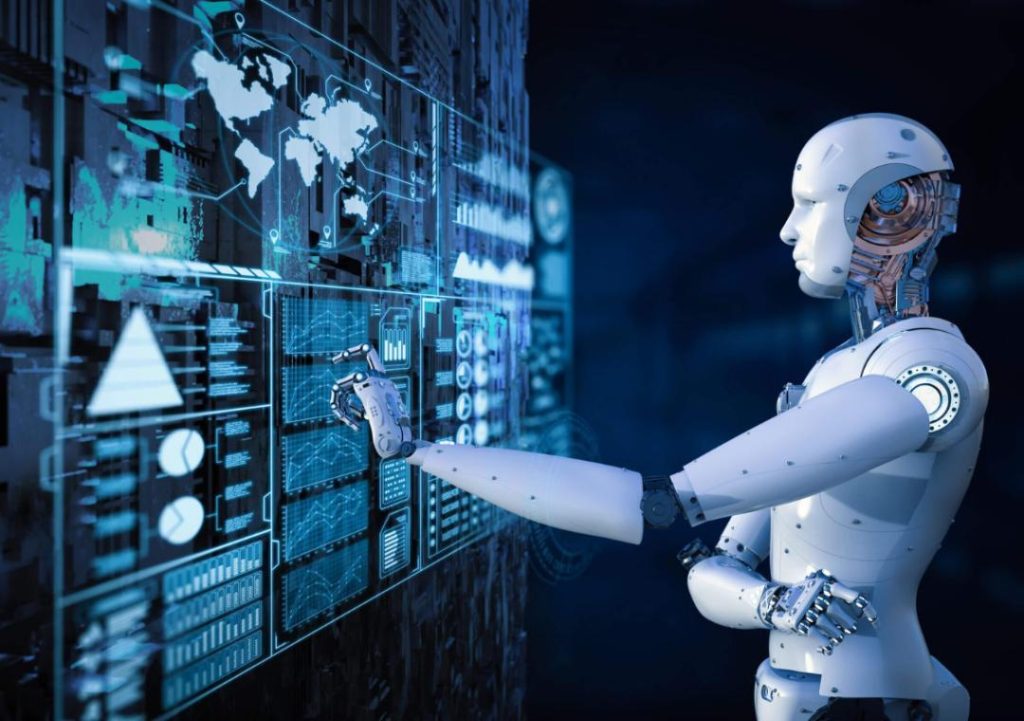
AI & Automation: The Productivity Power Duo
In today’s fast-paced, technology-driven world, businesses are constantly seeking ways to streamline processes, reduce costs, and increase efficiency. Two innovative technologies that have been gaining traction in recent years are Artificial Intelligence (AI) and Automation. When combined, these technologies form a powerful duo that can revolutionize the way businesses operate.
What is Intelligent Automation?
Intelligent Automation (IA) is a concept that combines Robotic Process Automation (RPA) with AI. RPA involves using software bots to automate repetitive, mundane tasks by mimicking human actions. AI, on the other hand, uses machine learning algorithms to analyze data, identify patterns, and make decisions. When combined, IA allows bots to handle routine tasks while AI tackles complex decisions, freeing up human teams to focus on high-value tasks.
The Benefits of IA
So, what are the benefits of implementing IA in your business? Here are a few:
- Faster Transactional Work: With IA, routine tasks can be completed in a matter of seconds, allowing for faster transactional work and improved customer satisfaction.
- Adaptive Processes: IA can identify and adapt to new patterns and processes, ensuring that your business stays ahead of the curve.
- Human Teams Free to Focus on Strategy: By automating routine tasks, human teams can focus on high-value tasks such as strategy, innovation, and decision-making.
- Improved Accuracy: IA can help reduce errors and improve accuracy by automating tasks that are prone to human error.
- Cost Savings: IA can help reduce labor costs by automating tasks that would otherwise require human intervention.
Industries That Can Benefit from IA
IA is not limited to any one industry, and can be applied to a wide range of sectors. Here are a few examples:
- Finance: IA can help automate tasks such as data entry, account reconciliation, and customer service, freeing up human teams to focus on high-value tasks such as investment analysis and portfolio management.
- Healthcare: IA can help automate tasks such as medical record keeping, claims processing, and patient scheduling, improving patient care and reducing costs.
- Manufacturing: IA can help automate tasks such as quality control, inventory management, and supply chain management, improving efficiency and reducing waste.
- Customer Service: IA can help automate tasks such as chatbots, IVR systems, and email management, improving customer satisfaction and reducing response times.
Challenges and Limitations
While IA has the potential to revolutionize the way businesses operate, there are also some challenges and limitations to consider:
- Data Quality: IA relies on high-quality data to function effectively. Poor data quality can lead to errors and inaccuracies.
- Integration: IA requires integration with existing systems and processes, which can be time-consuming and complex.
- Security: IA requires robust security measures to protect sensitive data and prevent cyber attacks.
- Change Management: IA requires significant changes to business processes and culture, which can be challenging to implement.
Conclusion
AI and Automation are two powerful technologies that, when combined, can revolutionize the way businesses operate. Intelligent Automation allows bots to handle routine tasks while AI tackles complex decisions, freeing up human teams to focus on high-value tasks. While there are challenges and limitations to consider, the benefits of IA make it an attractive solution for businesses looking to improve efficiency, reduce costs, and increase productivity.
Source:
https://www.growthjockey.com/blogs/intelligent-automation






